All change, please!
This post has been updated and is now on a new version of this site.
This notice will remain online until 20 September 2016.
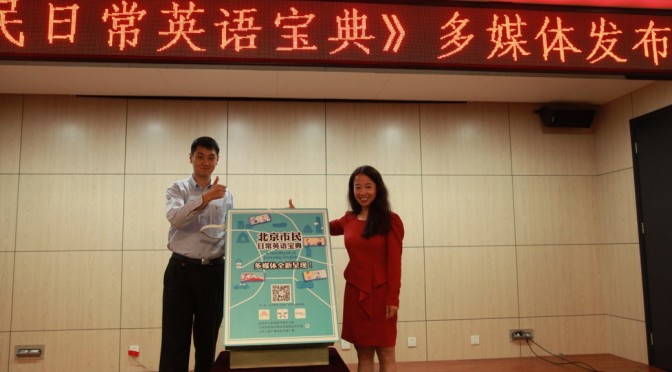
All change, please!
This post has been updated and is now on a new version of this site.
This notice will remain online until 20 September 2016.

All change, please!
This post has been updated and is now on a new version of this site.
This notice will remain online until 20 September 2016.

All change, please!
This post has been updated and is now on a new version of this site.
This notice will remain online until 20 September 2016.
All change, please!
This post has been updated and is now on a new version of this site.
This notice will remain online until 20 September 2016.
I’ve seen Taiwan’s democracy / democrazy through all these years. (What a renegade Chinese mainland resident I am!) During the years of Chen Shui-bian, when (political) lines between Ilha Formosa and its communist rival on the mainland were drawn with every Chen speech, people were far from being 100% in agreement about what Ketangalan Boulevard was all about. Brawls in the legislature were not uncommon: often, these were deals between Mainland China and Taiwan. Water was poured onto legislators, microphones were broken, and what must have been a hundred-page report (unstapled!) were simply thrown onto the floor. Things turned from the rational to the irrational when pro-China legislator Li Ao was thrown a shoe.
We’re having exactly the same in Taiwan these days over a new agreement with Mainland China. Yes, I’ve been lazy these days — I haven’t checked what’s up re: this very issue on the Wikipedia. But the fact is, occupying a legislature is (a) not done “just like that” and (b) is a serious issue indeed. On Facebook I’ve been hearing a lot of views from inside Taiwan and there is one that me and others posted that seems to have struck a chord (loosely translated below):—
If we have a fight with China, the communist army will wipe us out. If we keep fighting with the government, all of Taiwan stands to suffer. Thing is: the Taiwanese are best maximising their own efforts. Just be you and be better in all that you do. Make people look at Taiwan — going away admiring Taiwan. That is the true hidden beauty of Taiwan.
That’s one point that seems to have won a fair bit of hearts. But the question remains: What if you have a government that seems to be going out of control? Throwing shoes and occupying legislatures happens in democracies that have a bit of an identity crisis, for these appear to be acts of democrazy in a democracy. But the people still think the government are going bonkers. And they want to be heard.
We need something, then, that’s called a veto vote. Yes, it’s a David Feng polit term that makes less than no sense. It’s like as if you were told that you had to shift gears to make a car with automatic transmission work (which would technically be OK, but would in reality invalidate the one big benefit of going automatic — saving you from shifting gears all the time!).
But the idea of the veto vote is that the people can come out and propose either a counter-proposal or an outright veto of a government bill. In countries where people aren’t so “vote-savvy” (such as China), one can allow here the system to enable both “open-air” meetings and meetings with “informed voters”.
The two things about a democracy that make it all the more worthwhile (and believe me, I myself am a citizen of such a democracy — Switzerland):—
Of course, you can have other rights as well — but as a citizen of a democracy living in a communist nation, I find that these two “power rights” are what separates a PRC citizen from a Swiss (as an example).
Note: Ever since Switzerland’s political EU-suicide on 09 February 2014, I have stowed away my “Swiss pride” and have become a vocal critic of the Swiss authorities — for a very simple reason that you can’t simply let the crowds tear apart an agreement you let them sign in the first place. It’s like: Oh great, I found my wife liked seafood, and I never liked that crap, so we’re divorcing. Instant knee-jerk reaction: Huh? Switzerland (and the SVP in particular) — you need to grow a few brains. There’s a better way to solve the immigration issues than to force yourself into isolation — that makes you eventually look like some kind of European Pyeongyang…
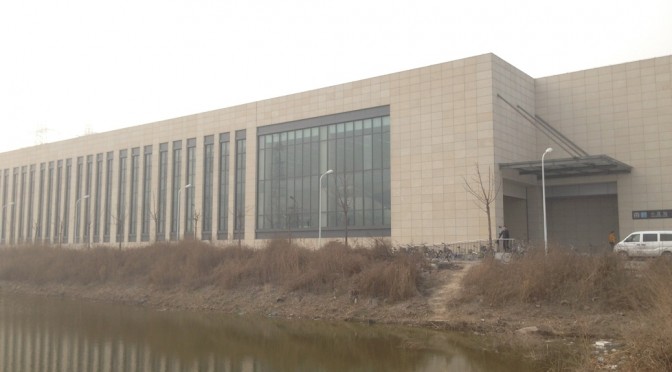
All change, please!
This post has been updated and is now on a new version of this site.
This notice will remain online until 20 September 2016.
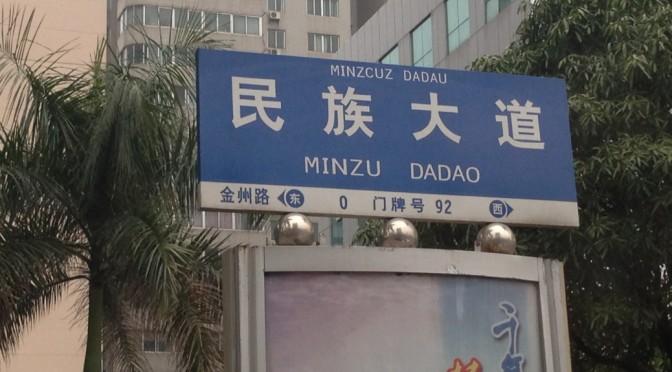
All change, please!
This post has been updated and is now on a new version of this site.
This notice will remain online until 20 September 2016.
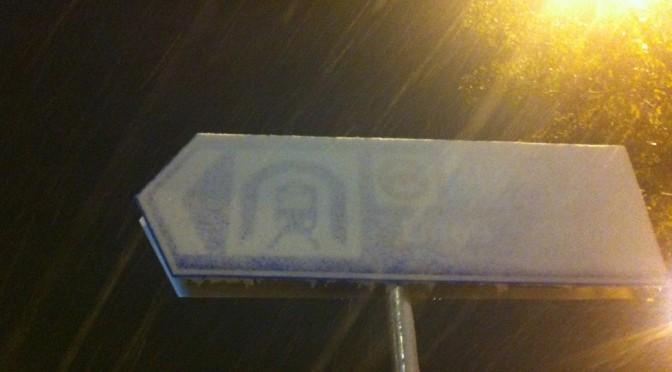
All change, please!
This post has been updated and is now on a new version of this site.
This notice will remain online until 20 September 2016.
This is by no means something easy. Chinese names can either appear to be too short, too standard, too Japanese-looking or too outlandish.
(Just like train station names except for the one-of-its-kind station with just one letter — 宋 station, aka Song Railway Station. Musical kits optional here.)
I digress. But Chinese names are comparatively more “boring” (but also more “diverse”) when compared with those in other languages — especially those you see in Europe and North America. There’s the “boringness” in terms of how long these names are (probably no more than six characters), but also in terms of what characters are used — these names are unique and diverse in their own ways. I remember the most complex of all characters were around 40 or more strokes per character…
But just how many characters make up a name can be an art in its own. Here’s how the whole thing works in general…
Hard already? Imagine the mess you get when you add a Western name into the whole thing. My Chinese name by characters is 馮琰 (Feng Yan in Hanyu Pinyin) but I add the English name David because few people can both spell and (more importantly for me) pronounce Yan (even I had a hard time doing so).
The other question is how they finish up in terms of the name ordering. I could either be David Feng, or David Yan Feng, or Yan David Feng, if I add my Chinese Pinyin (a la my name given at birth) to my “other names”. And in none of these events would I have a middle name. This is why foreigners registering with the police around China might have minor issues if they have middle names.
Far worse is a hypothetical foreigner that’s married and has the name Annina Stefanie von der Graf van den Bergh. That’s a total of eight names and you could easily imagine the cop freaking out as he struggles to find just what name(s) to register into the police database!
A greater still problem exists my end, for my former Chinese passport did not recognise Western names (I started using David as early as 1988, after a family friend suggested it to me), and I converted to a Swiss passport — totally forgetting any mods to my names. Hence my flight tickets (although not train tickets as of this post) bear my Pinyin name, whereas everywhere else I am known as David Feng (although the odd “ghost” media interview is adamant I “only” have a Pinyin name).
Given how complex names are my end of the world, you could be forgiven, then, if you find it odd that Chinese-looking locals at the Starbucks give themselves English names even if they hold a Chinese passport…
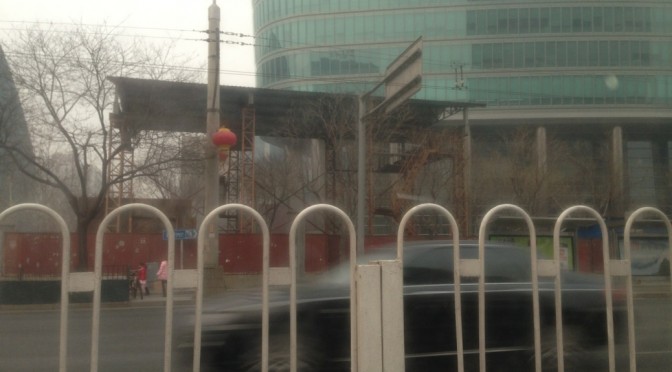
As of late, the city of Beijing is close to being stuck in smog for just around a week. In comparison to what usually happens next month (March), smog appears to be no competition for that. (In March, sand storms invade the city; in spring 2002, the skies appeared close to being orange — amplified to shiny orange when viewed from tinted windows!)
For the longest of all times, I thought when Beijing’s Subway services broke the length of the underground system in London, we’d get our traffic jams solved. For the longest time, I thought the magic transit elixir was the new Subway Line 6, which runs parallel to Line 1.
Yes, Line 6 was a welcome addition, and the inclusion of the city’s West Railway Station into the Subway system was a much-needed move, but so far, we are not seeing the city being rid of smog. In contrast, things appear to be far worse. The folks running the city (headed by Guo Jinlong and Co) seem to have made the city far more polluted than under the previous administrations (Liu Qi and the especially frank Wang Qishan). In essence, policies have been enacted which simply do not compute. For example:—
City Hall might want to get a clue — and take a cue from other cities that are doing it right. London’s Congestion Charging might want to be the first thing Guo & Gang may want to ape. There’s also the 9 o’clock reduced fare / flat fare rates for city transport that Zurich implements — Beijing might also want to try that on for size. Finally, we might take our cue from Paris. When travelling with my sweetheart for life, Tracy, I noticed the presence of a few power plugs for cars in the 13th arrondissement. That might be a wake-up call for the Jing.